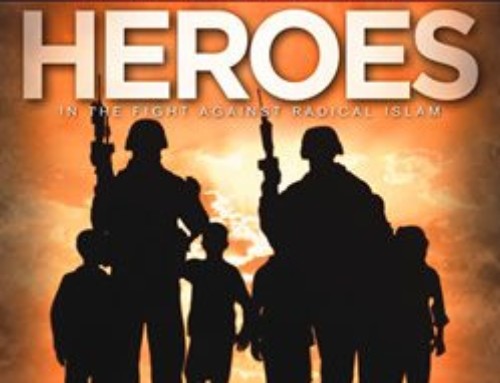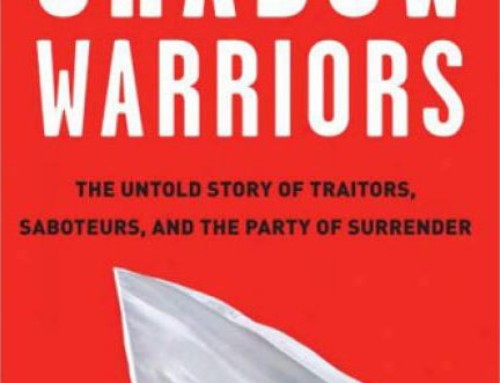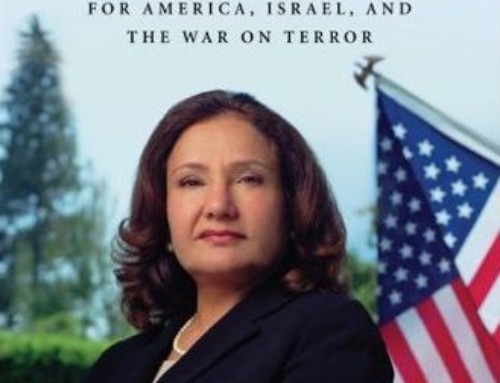An adequate working description of my new column might well be: Militant Islam vs. the West—The Good News. But now that both Iraq and Lebanon seem to be slouching toward civil war, now that schools open to Afghan girls are being attacked with savage impunity, now that Carl Levin, that sultan of surrender will be heading the Senate Armed Services committee, now that John Bolton has resigned, now that the Iraq Studyy Group has been ominously praised by Madeline Albright, the architect of the North Korean “Agreed Framework,” you might ask—isn’t this exactly the wrong time to launch a new column featuring the positive news emanating from the war with militant Islam?
My response is, “No, this is exactly the right time that we remind ourselves, among other admonitions, that the West was nearly conquered twice by militant Islam. Yet our European ancestors prevailed. And they did so with far fewer resources and military assets at their command than did their Islamic attackers. By the early 8th century, after 150 years of nearly uninterrupted brutal conquests, Islam had conquered two-thirds of Western Christendom. The Iberian Peninsula had fallen and the Islamic general, Rahman was razing coastal villages and taking slaves in Southern France while pressing northward toward the Loir River. Yet in 732, Charles Martel’s hastily assembled Gallo-Roman and German warriors crushed the larger army of “Saracens,” killed its general and drove them back over the Pyrenees. Fortunately for Western Civilization, Martel and his allies did not consider multilateral negotiations were not an option.
While books, essays, and televised documentaries that expose the nature and scope of this mortal Islamic threat are important and should not be minimized, my column’s focus will be on the areas where we are making progress, on where or in which theaters the West is winning and where militant Islam is structurally weak. My columns will be dedicated to Jeane Kirkpatrick, who taught us in the Cold War how to use words as weapons. I hope you will find my columns a respite from the dire and dreadful and that they will serve to repudiate those who relish our defeat for political gain.
Where’s the Front?
Although Islam is practiced by one-fifth of humanity and no one can assess what percentage of the “Umma” is radicalized, in sleeper cells, ready to take up arms, or is actively at war against us, it is clear that the front in this war stretches from the El Al ticket counter at the Los Angeles airport to the tribal semi-autonomous regions of Western Pakistan, from the subway systems of London and Madrid to quite possibly the mosque or shopping mall near you. It is worldwide. However, the good news is that, as Zarqawi, Zawahiri and numerous captured al Qaeda operatives have stated, Iraq is still the central front. And with that said, let me interject three obvious other good news items because they are very related and because they offer us a good starting point for this and future columns.
- The U.S. has not suffered a single successful attack on its soil since 9/11. There are an estimated 30,000 jihadists in the Anbar Province, up from few thousand in the beginning of 2003—this is GOOD!
- Our casualties have been comparatively few. As the eminent historian, Paul Johnson, has pointed out our causalities (in Iraq) are very few in comparison with wars of comparable political importance, and we are learning how to minimize them.”
- Many Jihadists go to Iraq to die instead of Manhattan or D.C. Johnson also points out that fanatics from all over the Muslim world who wish to become active terrorists, instead of infiltrating Western cities and forming cells there, have concentrated in Iraq where they have been killed in huge numbers in direct opposition to professional armies.
What This Column Is Not
I don’t assume that history is linear or that the war will be over soon. Good news may well be followed by bad. For example, the Islamist plot narrowly broken up in London last summer would have involved the detonation of 10 aircraft over U.S. cities, potentially killing tens of thousands Americans. The reconquista of the Iberian peninsula by the remnants of Visigothic Catholic Spain took more than 600 years. It’s obvious that the armies of Allah are also taking the long view and always have.
Secondly, I’m not politically correct or a multiculturalist. I concur with Robert Spencer, Serge Trifkovic, and Bernard Lewis in contending that Islam, except during times when it was too weak, has continuously waged war against the West. Yet, there are heroic people who were born into Islamic society but who are standing up to Islam’s obsessive hatred of the infidel and its banal aggression against peoples outside its realms. I will continue to profile Islamic apostates and revolutionaries. (See Iranian Women Provide Catalyst for Change and Iranian Dissidents Make Pleas to Bush.)
A Sampling of ‘Good News from the Front’
Some good news items that have appeared in my previous columns that are still worth considering and are representative of what you can expect from future editions of “Good News from the Front”:
- There is a greater percentage of women holding elected office in Afghanistan than in Canada. President Bush has liberated 50 million Islamic women in Iraq and Afghanistan.
- A greater percentage of Iraqis vote and participate in their democratic process than Americans.
- In one offensive operation against the al Qaeda fighters in Falluja, the combined forces of American and Iraqi soldiers, sealed off the town, and in brutal urban warfare, killed over 2,000 while losing 50. The liberated town, mostly Sunni, turned out in even higher percentages than the country at large in the most recent election.
- Pakistan, once an ally of the Taliban government, claims that it has killed or captured more than 800 al Qaeda fighters.
The U.S. Economy Has the Power
The good news is that the U.S. still produces brave men and women willing to defend our culture and civilization. And even more importantly, we’ve not succeeded in encumbering the American economy, so that we alone, amid all other western nations, have the economic might necessary to send special forces fighters out into the myriad remote backwaters of the globe and to pay them to kill terrorists. Richard Miniter, in his 2004 book, “Shadow War,” reports that in just the 911 days from the attacks on New York and the Pentagon of September 2001 to the Madrid bombings of March 2004, more than “…3,000 al Qaeda operatives were killed or captured in 102 countries.” Moreover, Miniter reports that, during that period, we and our allies interdicted, on average, a plot a day!
 Robert Kaplan in his 2005 book, “Imperial Grunts,” puts a still finer point on Miniter’s report:
Robert Kaplan in his 2005 book, “Imperial Grunts,” puts a still finer point on Miniter’s report:
…the turn of the twenty-first century found the United States with bases and base rights in fifty-nine countries and overseas territories, with (U.S.) troops on deployments from Greenland to Nigeria, and from Norway to Singapore, all this while defense appropriations amounted to only 3.3 percent of America’s gross domestic product—compared to 9.4 percent during the Vietnam War and 14.1 percent during the Korean War.
Even before the terrorist attacks on September 11, the U.S. Army’s Special Operations Command was conducting operations in 170 countries per year…
In short, we have the money to fight this war, albeit a truly global war. We still have enormous military superiority, soldiers who are capable and willing to fight and to win this asymmetric, irregular war albeit a very tough one. The question is—do we in the U.S. have the collective will, if need be, to go it alone?
NOTE: Publication: Human Events



